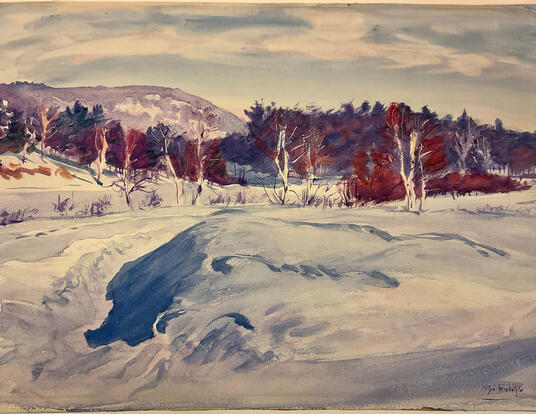Communicating Science to an Unsuspecting Audience
Notes from a Writer's Desk

Flat earthers, anti-vaxxers, climate change denialists: a large fraction of the population doesn’t believe in the scientific method, its results, or policies based on empirical evidence. They don’t trust the “intellectual elites” practicing science at research universities. Other people don’t have an opinion either way. In an age where it seems the gap between scientists and the general public is widening, how do we make sure our work reaches people, especially those who could benefit most from it?
Writing journal articles is a non-negotiable for sharing new scientific knowledge among academics. We must maintain the rigor and detail-oriented nature of writing for our peers in order for our knowledge to build upon one another’s previous discoveries.
In addition, some scientists decide to translate their results for a broader audience. They turn to popular science outlets and university news publications—or these outlets contact them for an interview. Popular science reporting often preserves the integrity and nuances of our results while rendering them accessible to people outside our niche fields, achieving an admirable goal. This is where most of us stop our outreach efforts.
But let’s be honest with ourselves. Do science deniers, the children under their care, or prominent members of their communities actually read popular science articles? Are they going to science fairs or seminars? Probably not.
So what should STEM academics and trainees do?
Science and technology fields must progress: potential solutions to humanity’s greatest problems, including disease and climate change, must continue to be investigated. These results cannot wait. And we should continue disseminating our results to the usual outlets: journals, university newsletters, popular science magazines and blogs, science-themed shows and podcasts.
As we continue with the two items above, I’m arguing for an additional layer to scientists’ PR strategy: to go where people aren’t looking for science content. For example, Ya’el Courtney, a GSAS neuroscience graduate, leverages her TikTok and Instagram platforms to discuss trending topics such as fluoride in drinking water and whether hydroxychloroquine actually cures COVID-19, debunking myths with data. Her videos reach people across the political spectrum with many different perspectives, driving (at times heated) engagement in the comments. Theanne Griffith, a professor of neuroscience at University of California San Diego, publishes chapter books for young children that follow characters through space, the brain, a body struggling with infectious disease, and more. Her audience will learn basic science concepts as they learn to read. By putting science-related stories in children’s hands or making videos with popular hashtags that users might spend even a minute watching, we may reach people who otherwise would never come into contact with our expertise.
Boldly inserting science where people don’t expect to see science, however, doesn’t require writing books or creating social media channels. You can practice pitching your thesis project and its importance at the dinner table or at your high school reunion. When someone challenges the veracity of scientific facts you know to be true, discuss with them to the best of your ability and as your mental health allows. Set up an “Ask-Me-Anything” event at a community center and be prepared for all levels of questions. Be able to explain your academic interests in under a minute to a five-year-old, a middle school student, and an adult without formal scientific training. If we meet people where they are, they will be able to understand facets of our work and why we do it.
Some members of our expanded audience might come away believing in the scientific method and data-driven policy. Some might continue to dismiss everything we say or do. And still others might just start to think we aren’t making everything up. And that’s a good enough start.
Ready to book an appointment with FWC staff? Access the FWC intake form.
Get the Latest Updates
Join Our Newsletter
Subscribe to Colloquy Podcast
Simplecast




